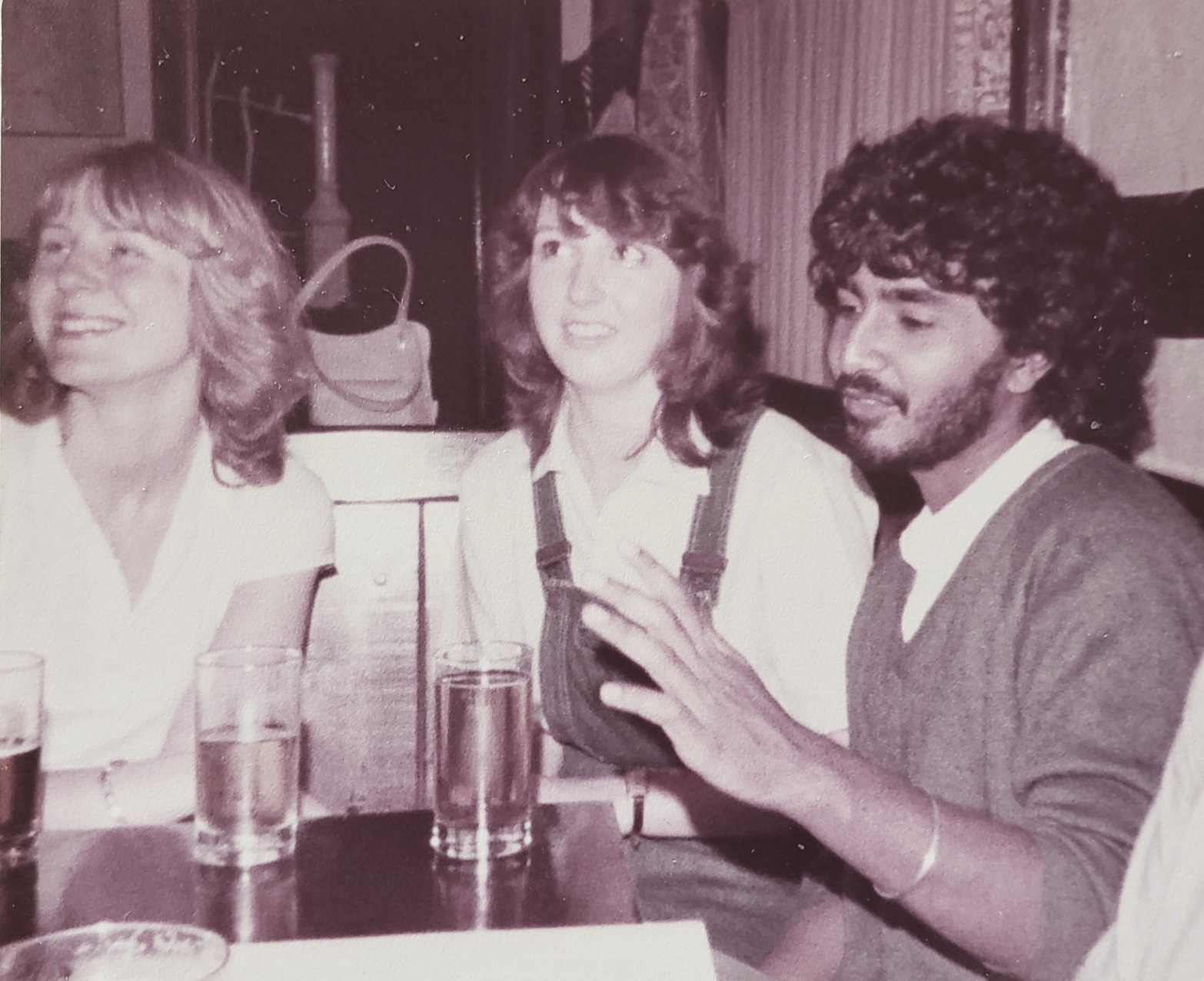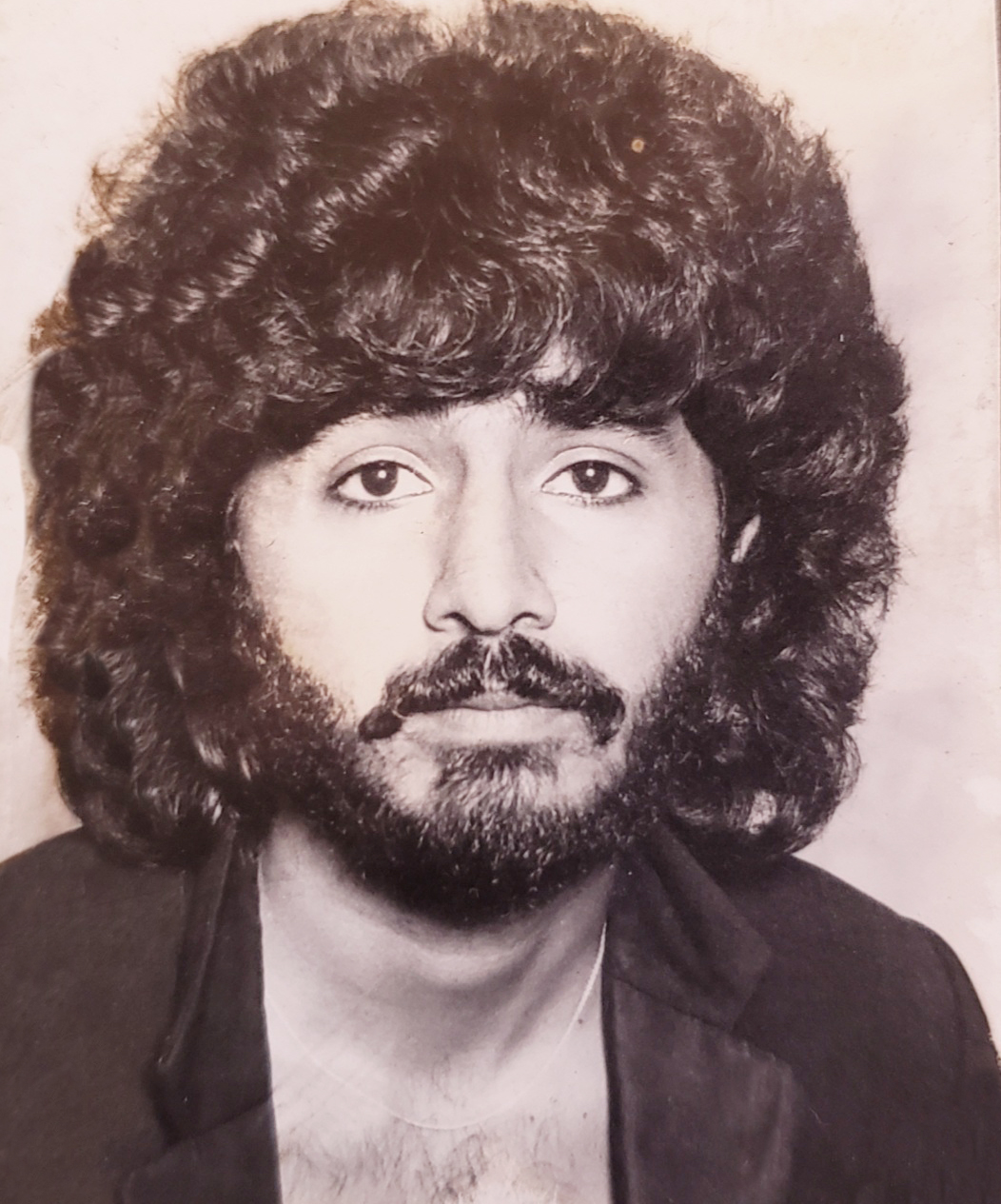
Wazir Ishmael PhD is the City Manager of the City of Hollywood, Florida, USA. He recently sat down with us to talk about his journey from studying Global Development at UEA, to working for Wigan County Council, to studying at the University of Miami, and finally, to managing the 12th largest City in Florida. He recently very kindly gave an insight into his successful career, how UEA kickstarted his journey and advised how students can make the best start in their careers.
I was lucky enough to see so many young progressive bands while at UEA, from the Ramones to U2 and The Cure. It was amazing.
Tell me a little bit about what you’ve been up to since graduation.
Well, since I graduated back in 1981 it’s been some time!
Initially, I took some time off to travel in Europe and South America for about a year. I then started working as a career advice worker in Leigh, Lancashire, for Wigan County Council. In this advice centre, I would assist both unemployed miners and a number of local young people. We would take them rock climbing and canoeing, and give them career advice. As a 22-year-old it was a wild position to be in.
After that, I got accepted into the University of Miami to study a master’s in Urban and Regional Planning, and fortunately received a scholarship for my full two years there. Then a scholarship opportunity came up to pursue a PhD in Urban Studies at Portland State University, so I decided to stay in the US.
Since then, I’ve had a variety of jobs in the planning and city management arena. I was an Environmental Planner in Washington State, a Transportation and Land-Use Planner in Broward County and a Community Development Director, all of which led to me becoming the City Manager for the City of Hollywood.
What was your ambition when you started studying Development at UEA?
I didn’t have a specific career in mind, but I knew I wanted to work in the Developing Nations Planning space. Coming originally from Guyana, South America, I always knew I wanted to give back through public service, and my friend’s dad worked for the UN in Swaziland, so I had a general ambition to work for the UN or an NGO.
I also knew travelling was an ambition for me. As a boy, it was infused in me by my dad. He would take me to Suriname, French Guyana and to the Amazon in the holidays. I went to boarding school in the Lake District when I was ten years old, and then went on to UEA where I would have to find my way back to Guyana for the holidays. So, I grew up travelling a lot as a young person on my own, and it’s really an important part of my journey.
So, coming back to your experience studying at UEA, tell me more about it.
Well to start with, I stumbled across Development Studies at UEA. As soon as I read about it, I felt as if the course was specifically designed for me. I had never seen a course like it and wasn’t aware that there were courses like it out there. After that, there was only one place I wanted to go, and the more I read about Norwich and UEA, the more I thought, wow this is it.
My favourite part of the course was area studies, I loved studying Latin American Development, South Asian Development, South East Asian and African Development. I took all of them! I loved the camaraderie of the school and the opportunity to exchange views and opinions, particularly with the lecturers. They really treated you on par with themselves and there really was two-way communication, so I loved the discourse in our seminars. We also had professors and lecturers who didn’t just have theoretical knowledge, but also practical knowledge and field experience. They could provide their real-life experiences or particular knowledge which was really useful.
I had an amazing time at UEA, the three years flew by. In fact, the final year took me by surprise because I hadn’t thought about what to do post-UEA!
 Wazir Ishmael with friends at UEA
Wazir Ishmael with friends at UEA
Is there anything that you learned on the course that informs your work in public service now?
The sheer eclectic nature of the course was helpful for my future career.
I took classes from Micro to Macro- Economics, and from Latin American and South Asian Development area studies to Behavioural Aspects Theory and Agricultural Production Economics. This meant that later on when employment opportunities came my way, I had the confidence to take them on. The fact that UEA gave me the opportunity to pursue a wide array of subjects and classes, and to interact with so many different people and things, it made it very easy for me to take on new challenges. For example, in my career, I’ve been an environmental planner, but the only background experience I had was a class in Natural Resource Theory at UEA!
Going back to your career in the public service, what key tasks and skills are involved on a day-to-day basis?
My role as a City Manager is mainly being the leader of an organization, so I have to listen a lot. That is something that is not always easy, as after working for a certain period of time you think you know the solutions to all sorts of questions. So, I must continue to hone those listening skills. I also believe that providing leadership is to understand where true north is. Creating that vision, and then leading folks towards that vision. So, in my mind, the skills that are important are to have a consistent set of values.
I also believe that confidence is important in my job. I don’t know from day-to-day what I’m going to have to deal with. Of course, we have strategic and comprehensive plans in place for the future, but life gets in the way sometimes. So, I think the eclectic and diverse nature of Global Development at UEA, put me in a position to not panic in new and different situations.
The School of Global Development at UEA is 50 years old next year, how do you think the development sector will change in the next 50 years?
I think it’s time for major structural changes at the international level. The entities that have shaped the world since the end of the Second World War remain pretty unchanged, despite the fact that countries who have achieved independence have easily tripled since then. These countries must come to the table and take a leadership role. We have to move away from this block of countries that have an inordinate amount of power, when there are so many other nations now that should have that representation.
We’ve seen this in some ways on a regional basis, but they haven’t broken down the doors in terms of the larger, multi-lateral organizations. And I think that is important for the development sector side.
 Wazir Ishmael during his time at UEA
Wazir Ishmael during his time at UEA
What personal or professional achievement are you most proud of?
Professionally, the acquisition, design and creation of the Miramar Town Centre is something I am very proud of. Our work has won a number of awards, was featured in the Wall Street Journal and importantly, has drastically improved the quality of life for the residents of the city. Until that time, there was no sense of time or place and there was no image of this city, so this town centre really galvanized people and brought them together. It now includes a performing arts centre, a new city hall, universities, colleges, residences, commercial space and a Town plaza and square. When I first went to that city people were laughing at me, but I saw opportunity there. It was my greatest achievement and something I am proud of.
I’m also very proud of where I am now, in the City of Hollywood. I came to this city in 2014 when it was in a financial crisis. The taxable value of the city was around $11 billion and now, 8 years later, it’s $21 billion. We currently have about $2 billion worth of construction planned or underway in the city. My eight years of service transforming this city is another of my greatest achievements.
Is there any advice you would give to our current students?
In your career, take chances. When opportunities come your way, take it and go with it, even if it’s not what you originally wanted to do. Certainly do things that you find interesting and follow your passion, but open yourself up to things you might not have considered.
Would you recommend studying at UEA?
Yes, without question. Particularly I’d recommend the course that I took. Development studies certainly challenged me, but it did equip me later on in life. In fact, I’m still in contact with a number of UEA alumni from all aspects of UEA life, and they’ve all been highly successful in their careers. So, the university certainly prepares you for later life possibilities.
And UEA itself is a beautiful campus, it has a very progressive and active student body and the city of Norwich is great. I also fondly remember the LCR’s great entertainment programme, I was lucky enough to see so many young progressive bands while at UEA, from the Ramones to U2 and The Cure. It was amazing.

)